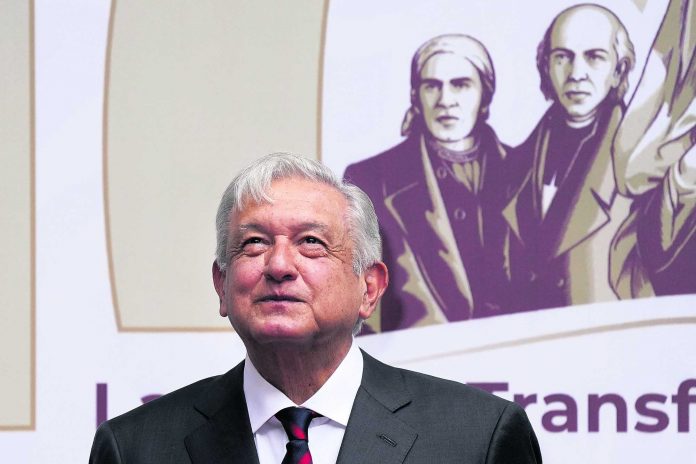
By MARIA VERZA
Associated Press
MEXICO CITY (AP) — Mexico’s government on Thursday proposed a dramatic overhaul of the nation’s electoral system and the agency that oversees it — one of the country’s most trusted institutions. It would reduce the size of Congress and state legislatures while having the federal elections board chosen by voters, potentially adding a higher degree of politics to what has been an independent body.
The proposal also would reduce federal funding of political parties and spending on elections in general — a repeated target of President Andrés Manuel López Obrador, who has often feuded with the National Electoral Institute.
The proposals presented by López Obrador and several members of his cabinet would create a new federal elections authority to replace the institute, as well as eliminating similar state-level bodies.
“There is no intention of imposing a single party,” López Obrador said. “What we want is that there is a true democracy in the country and that electoral frauds end … to leave a true democratic state established.”
But the path for what will surely be a controversial reform package would be difficult. López Obrador’s party and its allies do not have the two-thirds majority in Congress required to make constitutional changes. The main opposition parties have already said they oppose such changes.
Another major constitutional reform proposed by the president, to shake up the energy sector, fell well short of the votes needed last week.
López Obrador appeared to acknowledge that the proposed reforms are unlikely to pass. He called on the Congress to study each element of the proposal, make the public aware and then decide. He said it was his responsibility to present it “even if it’s not approved.”
López Obrador has spent decades battling electoral authorities. He considers himself a victim of electoral fraud on multiple occasions, though it was the National Electoral Institute that confirmed his landslide presidential victory in 2018.
The proposals would reduce the number of legislators in the lower chamber of Congress from 500 to 300 and senators from 128 to 96 by eliminating at-large lawmakers. Those are not directly elected by voters, but appear on party lists and get seats based on their party’s proportion of the vote.
Political parties would only receive public funding during campaigns rather than yearly, as now. Rules against officials and agencies promoting their programs during campaign seasons would be eased. Currently, even many government websites are inactivated during campaigns.
López Obrador’s administration argues that the changes would save Mexico $1.2 billion and allow citizens to select honest people to run elections.
The idea of a popular vote for election officials has been panned before by academics who argue that the people in those positions must be experts and who say it could lead to political bias in the way elections are run.
“To think that an electorate so varied and so uninformed would have the ability to select electoral council members and magistrates is pure demagogy and pretense,” said Clara Jusidman, founder of the nongovernmental organization Citizen Initiative and Social Development. She said those in power would steer their supporters to vote for who they wanted.
Several of the proposals would undo or loosen reforms that helped Mexico break free of the single-party domination that lasted from 1929 to 2000.
The at-large legislators were created to give smaller parties representation in Congress – initially largely symbolic — at a time when the Institutional Revolutionary Party had an iron grip on elections and rarely recognized any opposition victories.
The independent electoral agency was created by a series of reforms in the 1990s following public outcry over alleged fraud in the 1988 presidential election, which – like earlier votes – had been run by the federal Interior Department.
That helped lead to an opposition party victory in the 2000 presidential election.
















